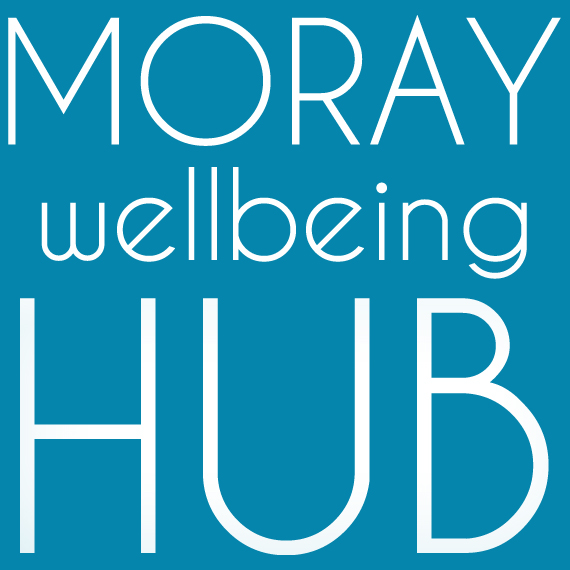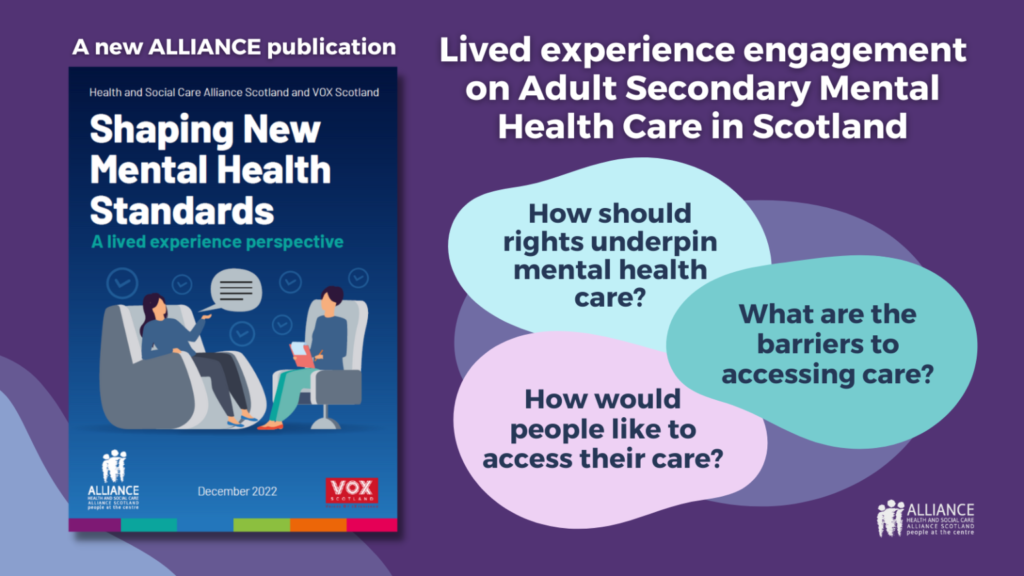Irene Oldfather reflects on the ALLIANCE’s lived experience engagement as consultation opens for new Mental Health Standards in Scotland
No one should be left to struggle with mental health issues on their own – but for too long, this has been the experience for many in Scotland. The pandemic inflicted a shared experience of isolation and loss on us all, but has also shone a light on how we to need to ensure that we consider ‘health’ in the widest possible context, particularly focusing on mental health and wellbeing.
Therefore, as part of its broader Mental Health Strategy to 2027, the Scottish Government Mental Health Directorate is developing new quality Standards to ensure improvement in experiences of adult secondary mental health care, at a national level. These proposed quality standards for adult secondary mental health services have now been shared for public consultation, and you can share your thoughts via the Scottish Government consultation portal here (link will take you away from our website). this link will take you away from The Alliance website You can find the link to the full consultation paper at this link, which is also available in easy read format.
To support this work, the ALLIANCE and VOX Scotland have conducted new research into the lived experience of mental health services in Scotland, ensuring that the voice of people with lived experience, their families and/or unpaid carers are centred within Standards development. We are pleased to publish our report today, entitled ‘Shaping New Mental Health Standards – A lived experience perspective’.
The ALLIANCE and VOX Scotland’s engagement work for this project was driven by key objectives of understanding what was important to people with regard to their mental health, and creating platforms for people to share their experiences.
So, across the range of our engagement, we asked people to consider a couple of things. Firstly, what mattered to them? What was important to them and to their families in accessing mental health services and ensuring that standards were in place in the future? And secondly, what would they change? What would they like to see different? What barriers and challenges did they encounter?
From the range of responses and our own analysis of the data collected during the engagement process, the five key areas people would like to see change in Scotland’s mental health services are:
- Improved access to services themselves: ensuring that the first point of contact always engages in support, and you can do this anywhere in Scotland.
- Information and support: removing the complexity of the system, and the difficulty of knowing exactly where the ‘front door’ is, making it clearer and easier for people trying to access help.
- Consistency of care and treatment: supporting effective self management to help people remain well, and a greater focus on preventative care.
- Communication: improving communication between services themselves, and communication between professionals and patients.
- Attitudes: supporting people to be equal partners in their own care, involving them in their care plan and decision making, and above all, showing kindness at all times.
The engagement programme we carried out provided an open and understanding opportunity for people with lived experience to share their stories and advocate for positive change in adult secondary mental health services and psychological services, and we’re so grateful to those who gave their time to do so. It has been such an enlightening experience for us, and the perspectives people shared with us have provided a rich evidence base for the development of these Standards.
We hope that this work contributes to a new standard of engagement with lived experience perspectives as mental health services are developed. The priorities of people who use these services must remain connected to service development and policy, if people are to feel that they are no longer alone in managing their mental health, and that support is out there and available if they need it. People must remain at the heart of what we do.
Watch Irene Oldfather, Director of Strategic Partnerships and Engagement at the ALLIANCE, explain who we engaged with and what we found out (this link will take you away from our website) this link will take you away from The Alliance website.







